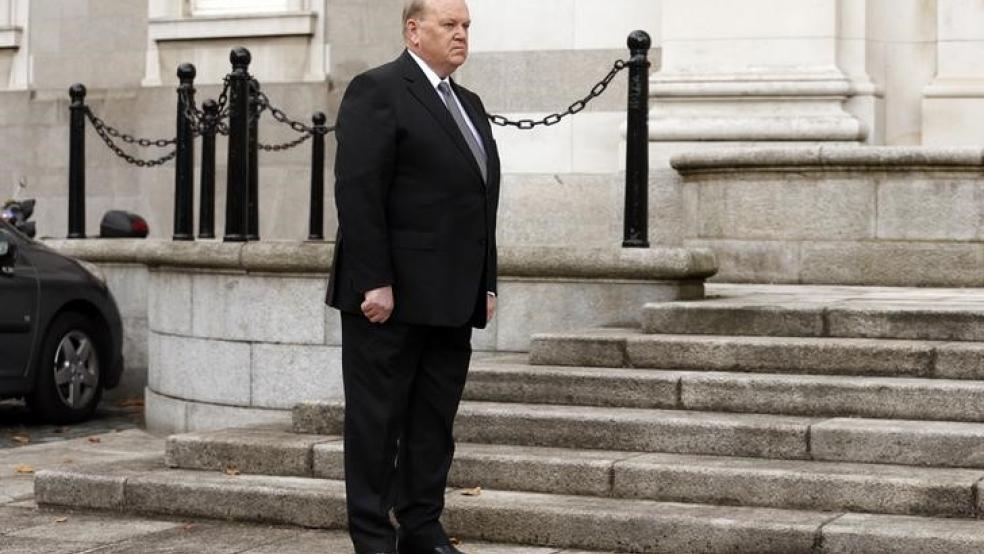DUBLIN (Reuters) - Proposed legislation by Ireland's main opposition party to hand the country's central bank power to intervene in setting mortgage rates is deeply flawed and needs to be reviewed, Ireland's finance minister said on Tuesday.
Fianna Fail, the country's second largest party, tabled the bill on Tuesday in the first legislative test for Ireland's new minority government, which does not have sufficient votes in parliament to dismiss opposition proposals. Finance Minister Michael Noonan said some provisions in the bill appeared to be unconstitutional. The European Central Bank would need to be consulted before it could be enacted, he said, adding the central bank did not wish to regulate interest rates."For these reasons, and to assess other unintended consequences, I consider it essential that this bill goes through pre-legislative scrutiny," he said in a statement.Noonan requested the bill be put on hold for six months while being scrutinized but three more opposition parties and groups said they would support the legislation, making it likely Noonan's amendment would not be accepted by parliament.If unsuccessful, Noonan said the government would not oppose passing the bill to the committee stage when the initial debate ends on Wednesday, avoiding an embarrassing defeat in its first week and allowing for possible changes before a final vote.Noonan last May threatened the authorities could take control of setting mortgage rates, triggering cuts in rates from most banks. Allied Irish Banks, the country's second largest lender, last week announced its fourth cut in 18 months.Noonan said the government shared the principle of pushing for a further reduction in mortgage costs but favored doing so through increased competition. "The heavy hand of regulation may not be the best way to engender competition," he said.Irish Central Bank Governor Philip Lane, reiterating that he did not wish to be given such powers, last month described a cap on rates as a "very crude instrument with many downsides," including potentially solidifying a lack of competition. Fianna Fail, which has agreed to abstain on key votes to facilitate the minority government but can still propose its own non-budgetary laws, said the mere existence of new regulatory powers, whether used or not, would force banks to cut rates."It is the Oireachtas (parliament) that decides what powers are granted to the Central Bank. We in the Fianna Fail party are not afraid to robustly challenge the Central Bank and indeed the lenders," finance spokesman Michael McGrath told parliament. (Editing by Tom Heneghan and Diane Craft)Irish finance minister calls for scrutiny of mortgage rate bill

CATHAL MCNAUGHTON



